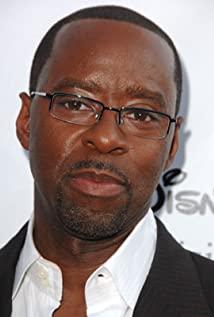The movie market at the end of April is a warm-up for the summer season. In the past, "Rage Beast" Johnson took the gorilla to save the United States, and then "annihilation" Portman went to the unknown forbidden land.
However, I still have to push for an animated feature film under the circumstance that these two big movies are leading the box office.
It is: "Isle of Dogs"
Why are you praising this movie? If nothing else, just go to Wes Anderson, who directed the film, and it's worth the movie ticket money.
("Isle of Dogs" director Wes Anderson)
Wes Anderson is known as the leader of the new generation of American directors. He is known as the "Master of Color" in the world. His works have been nominated for the Academy Award for many times, swept the three major European film festivals, and even won the best director in Berlin. And the Jury Prize, known as the grand slam of the film industry, it is soft to win the award!
In China, so far only one director has received the above awards, and there is only one film, the director is Chen Kaige, that film is called "Farewell My Concubine", the pinnacle of Chinese films...
Why is Anderson so awesome, because his movie plot is good? Edited? Or the effect is good?
The plot, editing, and special effects are not bad, but the most prominent is the color and lens. Wes Anderson's famous killer is color and lens. It is for this reason that he is known as the "Master of Color".
Back to "Isle of Dogs".
Anderson's talent for color is on full display in the cartoon "Isle of Dogs".
The picture and texture of this new film are still so "Anderson". With the popularity of dog movies in the past two years, his movies have brought more different flavors.
In the past, dog movies took the literary and artistic route of "healing" or "depression". For example, "The Story of Hachiko, a Loyal Dog" is very healing; "A Dog's Mission" is very depressing. In this film, we see a deeper flavor. Wes Anderson has revealed to us more social metaphors, not only "overlooked", but "out of mind" while maintaining a sense of literature and art.
The story takes place in Japan 20 years later. Due to the raging "canine flu", the government issued an executive order to exile all dogs. This garbage island far away from the city has become the "island of dogs" where dogs can survive.
When everyone abandoned the dogs, a 12-year-old boy broke into the "Canis Island" alone in search of his dog. The little boy and five dogs have experienced all kinds of hardships and wonderful encounters on the "Canis Island". The story finally moved those in power to take dogs seriously again.
At first glance, this kind of story content can be regarded as the kind of healing film with a happy ending, but aside from these, Wes Anderson's choice of story background and character motivation has a very deep meaning.
First of all, the Japanese city as the background of the story, coupled with the behavior of the powerful figures, just corresponds to the dark history of our neighboring country that was once ruled by the fascist dictatorship. This setting has already set a depressing style for "Isle of Dogs". The story that unfolded later followed this route.
And Mayor Kobayashi, who exiled dogs because of his cat-loving hobby, created dog distemper and killed scientists who developed medicines to consolidate the status of cats in people's hearts. Use self-will as the standard for the development of the entire society to suppress dissidents. A class uses power to protect the interests of its class, which is not the relationship between cats, dogs and humans, but a microcosm of the means of domination in the evolution of human society. Equality does not really exist at any time, and the balance of inequality only changes its tilt. Isn't this a tragic truth in our civilization?
To put it bluntly, the film constructs a social reality in which authoritarian society and minority movements conflict.
A dictator has his own purpose and will, and in order to achieve it, he creates a lie to be believed. At the same time, dictators assemble in groups to clear the obstacles to their goals that are the most innocent and most in need of help.
(Group portrait of Japanese dictators)
Such an "explicit" revelation is on a large scale.
Although Anderson constructed an adult fairy tale, and the ending of the story is also a happy reunion type, it does not affect his use of colors and the beauty of the lens to set off the explicit and cruel story core.
In fact, as early as "The Grand Budapest Hotel", he included the ideological core of anti-war in the film, and used the image of the ruler during the First World War to portray the characters to achieve the purpose of metaphor.
Speaking of which, we can focus on the film "The Grand Budapest Hotel", which is called Anderson's masterpiece.
"The Grand Budapest Hotel" is known as the master of color and lens.
The film swept almost all the nominations for screen and design awards at the Oscars that year, including four awards for best art direction, best costume design, best makeup and hair design, and best original soundtrack. It can be seen how wonderful the experience of the film screen to the audience is.
Wes Anderson loves symmetrical images and color balance. It is said that half of his films are obsessive-compulsive patients (just kidding), and you will find that the composition of his works are harmonious and symmetrical, giving a sense of stability. feel.
On the camera, Anderson likes to use long shots and focus changes. The previous clip may be a character running in the mountains, and then it will instantly cut to a close-up of the character. The transition is very fast, allowing the audience to be in it and experience it together with the character.
This kind of experience is like you are looking at a diorama with a kaleidoscope, and you can still participate in it under the magnificent transformation, which is really attractive to the viewers.
Speaking of color, it can be said that every frame of "The Grand Budapest Hotel" is beautiful and can be used as wallpaper. This is not an exaggeration. Anderson's ability to reconcile color and scenery is second to none.
The whole film is like a fairy tale when you look at the picture alone. The pink hotel, the white snow scene, the gorgeous accessories, and the complex costumes of the characters are dazzling but not cluttered.
The main reason is that the director set the main color of the film as a warm color, used a lot of pink and purple as the base color, made detailed color distinctions on it, and added other tones as a certain embellishment.
Anyway, is it a bit like painting? Anderson's pictures and colors are so serious.
Come and experience the beautiful stills from "The Grand Budapest Hotel"!
He has both super artistic aesthetic ability and metaphor critical reality ability. If he can do one of them well, he will have a place in the film industry, and Anderson has both.
In fact, to have such an ability, I have to say that the influence of his family environment.
Anderson was born in a middle-class family. His mother and younger brother were both engaged in literary and artistic work. The affluent family environment and the atmosphere of life full of literature and art deeply influenced Anderson.
Later, the divorce of his parents began to affect his insight into the world. Anderson himself said that for a while, he always felt that the world was not real enough and full of deceit. He was more willing to imagine a new world to bloom his dreams.
Perhaps because of this, his films without exception have a feeling of seeing the cruelty of reality in a fantasy world.
With unique aesthetics and profound ideological cognition, Wes Anderson, the next master of the movie industry, has gradually had his shadow.
Let us bless this genius who has experienced pain but gets nourishment from pain, and look forward to more good works from him.
View more about Isle of Dogs reviews











